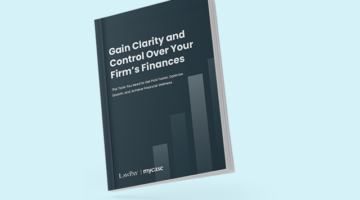A new study commissioned by an undisclosed top 25 law firm suggests that neither a law school’s ranking nor a student’s GPA is a great predictor of an attorney’s long term success in Biglaw:
Law school rank and GPA were only moderately predictive of success, the study found. In general, one of the study’s authors, Ron Paquette, tells the ABA Journal, “The Harvard attorneys do not perform any better than those at the 30th-ranked law school.”
Of course, that makes sense. Given that many HLS students have based their entire sense of self-worth on going to Harvard, it’s obvious that graduates from WIlliam and Mary can’t hope to compete with … wait, what? I don’t under … ow. Worldview. Melting.

LexisNexis’ Practical Guidance Is Every Attorney’s Essential Concierge
This tool will — seamlessly and authoritatively — take you from initial research to final draft in just about any practice scenario.
The study also identified attributes that were detrimental to success, and some were “counterintuitive,” the study summary says. Ron Paquette [one of the study’s authors] disclosed one of them–foreign language proficiency. He says the study recommended that the law firm should not give “extra credit” to those job-seekers who can speak another language.
Merde! Ce rapport est mauvais.
More productivity indicators after the jump.
Apparently, leadership qualities, participation in community activities, and even participation in college athletics are better indicators of law firm success. Social skills, it’s not just for M.B.A. candidates anymore.

Take Control Of Your Firm’s Finances With Tools Built For Success
Position your firm for long-term growth with better financial visibility and control. Learn how to track performance, manage spending, and plan strategically—download the full e-book now.
The methodology used for this study is actually quite interesting:
On the basis of several “soft” and “hard” performance measures that were of particular relevance to our client, we investigated over 1300 timekeepers (past and present) to identify those who were “outperformers” and those who were “underperformers”. Against this statistically ample population of lawyers, we tested the relationship to performance of about 200 “attributes” — each of which can be ascertained objectively prior to the point of hire, either from the CV, the transcripts (graduate and undergraduate), or interviews.
Because this metric is proprietary, we can’t know all the attributes that score well, and which ones do not. However, the authors make clear that their study does not obviate the importance of grades:
“There’s no one in here who got bad grades,” he says. The study simply showed that those with top grades aren’t much more likely to succeed than those with simply good grades. “If someone got a 2.0, I still would not hire them,” he adds, because the low grades could indicate low motivation.
Is a 3.2 and a life just as good as a 3.7 and an interpersonal deformity? Maybe so.
But why are law firms the only ones commissioning this kind of work? Perhaps understanding these metrics might do a lot more for law students than simply messing around with the grading system.
School Rank and GPA Aren’t the Best Predictors of BigLaw Success [ABA Journal via TaxProf Blog]
Moneyball Indeed! [Kerma Partners]